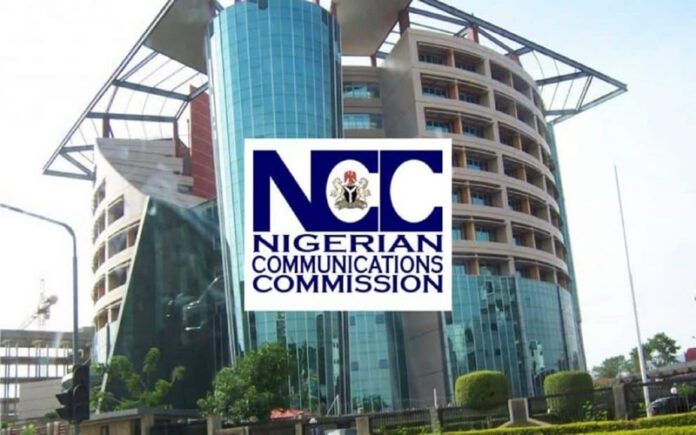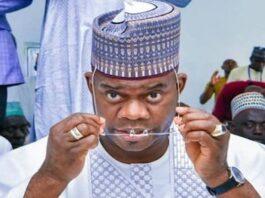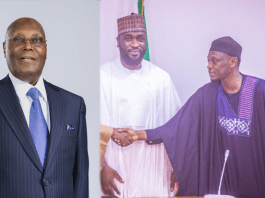The Executive Vice Chairman of the Nigerian Communications Commission (NCC), Prof. Umar Garba Danbatta, has said that continuous dialogues between the regulator and its various licensees are fundamental to uncovering durable solutions to the Issues negatively impacting licensee’s compliance with existing regulations and challenging the growth of the telecoms industry.
Danbatta stated this during the second edition of NCC’s 2021 ‘Talk to The Regulator (TTTR) Forum’ held at Four Points by Sheraton, Lagos, recently.
The discourse was themed, “Improving Stakeholders Satisfaction”. The Lagos edition of the programme followed the successful hosting of a similar dialogue in Kano on 16th October 2021.
The objective of the forum according to the NCC boss is to get direct feedback from licensees on how the Commission, as a regulator, is meeting licensees’ expectations.
The programme was also designed to identify areas for regulatory improvement, highlight areas where licensees are defaulting as well as address critical industry challenges undermining full accomplishment of the set objectives for consolidating the gains in the telecoms sector.
According to Danbatta, who was represented at the forum by NCC’s Executive Commissioner, Stakeholder Management, Adeleke Adewolu, the forum is organised in keeping with the Commission’s commitment to continually ensure regulator-licensee interactions to develop collaborative solutions and implementation programmes to the challenges of the telecom ecosystem.
“The Nigerian Communications Act (NCA, 2003) invests the NCC with powers and responsibilities for the regulation of both the technical and market-related aspects of telecoms infrastructure and services in Nigeria. We consider our role as a regulator very vital to ensuring industry sustainability because NCC considers consultation as the lifeblood of regulation” the EVC emphasised.
The EVC also declared that they have consistently deployed stakeholder engagement tools like public enquiries, private investigations, written information requests, one-on-one discussions as we are having it now and diverse consumer engagement platforms.
“These tools enable us to ensure that our interventions are well-grounded and that our decisions are based on a clear understanding of stakeholders’ perspectives”, he added.
More so, Danbatta said that such interactions fit squarely within the five pillars of the Commission’s Strategic Management Plan (2020-2024), which include Regulatory Excellence, Promotion of Universal Broadband Access, the Development of the Digital Economy, Facilitation of Market Development, and Strategic Partnering.
“Through regular interactions with our licensees, the Commission can gain valuable insights to enhance our regulatory output and enabled us to drive excellence in consonance with the five pillars of our strategic vision for the industry as streamlined in the Commission’s Strategic Vision Plan (SVP), 2021-2025,” he said.
The EVC also reinforced the Commission’s belief that only through optional performance by the licensees will Nigeria be able to achieve the national objectives and targets in the National Digital Economy Policy and Strategy (NDEPS) 2020-2030, the Nigerian National Broadband Plan (NNBP), 2020-2025 and other national policy instruments targeted at developing the nation’s digital economy ecosystem.
He said on this basis that the Commission is, “Therefore, we intend to use this forum to seek support for many initiatives that the commission has carefully developed in our quest to enhance market opportunities for all our licensees,” Danbatta said to emphasise NCC’s faith in collaboration with stakeholders and its licensees in order to address any concerns that may impede the attainment of the relevant policy objectives.
The NCC CEO also emphasised that the Commission will continue to roll out forward-thinking and all-inclusive regulatory initiatives to provide market opportunities for all its licensees. Additionally, Danbatta said NCC is also committed to constantly reviewing licensing frameworks as well as key regulatory instruments to refresh the Commission’s regulatory frameworks and ensure better service delivery for consumers and efficient attainment of other national interest objectives.
However, Danbatta said some licensees are not doing as much as they ought to be doing. “Several licensees are struggling to pay their staff, many are unable to comply with basic licence obligations, some are defaulting in the payment of their Annual Operating Levies (AOL) while the level of interconnect and other inter-licensee indebtedness is still unacceptably high.
Therefore, we are required to ensure regulatory interventions are put in place to address challenges, bottlenecks and grievances that may arise among the licensees in this regard,” he said.
Also addressing the gathering, the Director, Licensing and Authorisation at NCC, Mohammed Babajika, said the forum was intended to foster a harmonious relationship with licensees, identify their challenges and provide feedback on licensees’ fulfilment of their licence obligations and re-emphasise the role of licensees in ensuring good quality of service (QoS) and quality of experience (QoE) for the consumers.
While intimating the licensees of some regulatory initiatives focused on licensing issues, Babajika said despite the impact of the Covid-19 pandemic and its resultant challenges, the Commission was taking measures to further liberalise the telecoms industry by finalising the framework for Mobile Virtual Network Operators (MVNOs) while also reviewing existing licensing regulations.
In addition, the Director also informed the licensees that the Commission was finalising work on Information Memorandum (IM) for Fifth Generation (5G) technology deployment, which will promote emerging technology trends such as Internet of Things (IoT), Artificial Intelligence (AI), Over-The-Top (OTT) Services and Big Data Analytics, Blockchain, among others.
At the event, presentations were made by the Management staff of the Commission to the licensees and others, who participated actively through listening, making observations and suggestions, as well as seeking clarifications to improve the quality of discourse and the expected outcomes.





